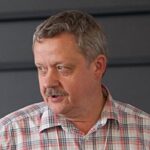Abstract
We discuss new challenges in the modern Science, created by Artificial Intelligence (AI). Indeed, AI requires a system of new sciences, mainly based on computational models. Their development has already started by the progress in Computational Mathematics. In this new reality, Optimization plays an important role, helping the other fields with finding tractable models and efficient methods, and significantly increasing their predictive power. We support our conclusions by several examples of efficient optimization schemes related to human activity.
Biography
Prof. Yurii Nesterov, awarded the World Laurate Association Prize is widely known as an inventor of the Fast Gradient Method (1983) and developer of Lexicographic Differentiation (1985). He is one of the creators of the modern theory of polynomial-time interior-point methods for structural convex optimization problems. In the book entitled “Interior-Point Polynomial Algorithms for Convex Programming”, co-authored with A. Nemirovskii, they introduced the theory of self-concordant functions to unify global complexity results obtained for convex optimization problems including linear, second-order cone and semidefinite programming. His subsequent achievements are related to development of Smoothing Technique (2005) and promotion of the higher-order methods (2019). The main impact of these results for practical computations consists in an extension of abilities of the optimization methods above the limits prescribed by complexity theory.
He got several international prizes and recognitions, among them there are
– Dantzig Prize from SIAM and Mathematical Programming society (2000)
– John von Neumann Theory Prize from INFORMS (2009)
– SIAM Outstanding paper award (2014)
– Euro Gold Medal from Association of European Operations Research Societies (2016)
– Member of Academia Europaea (2021) and National Academy of Sciences (USA, 2022)
– Lanchester prize from INFROMS (2022)

